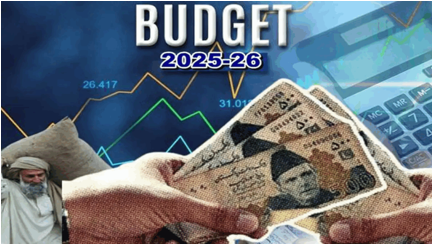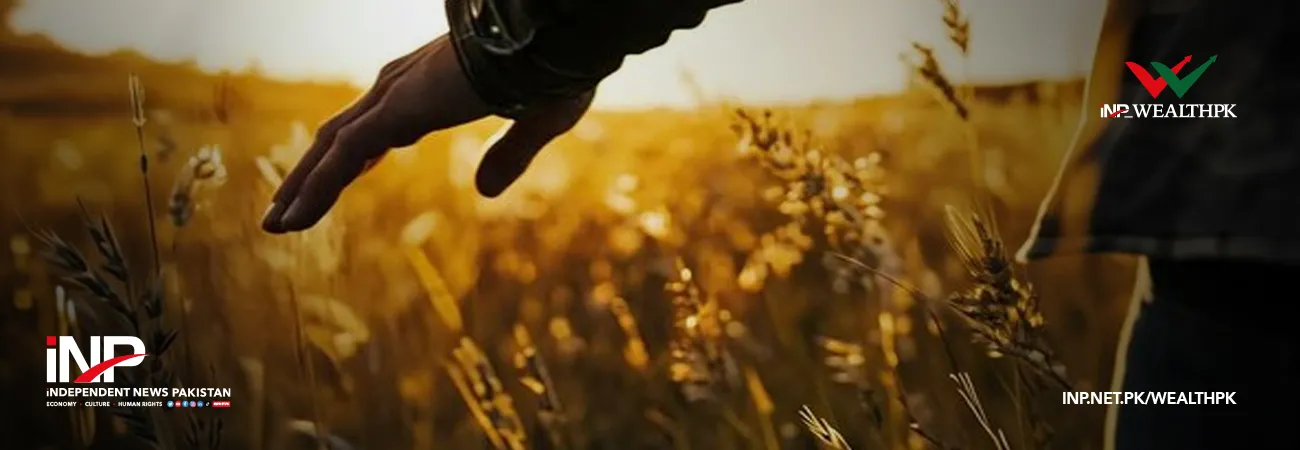INP-WealthPk
Azeem Ahmed Khan
Pakistan Kissan Ittehad (PKI) President Khalid Mehmood Khokhar has urged the government to ensure a 25% profit margin for farmers after determining the cost of production in line with the international standards.

He emphasized the need for a dedicated price commission for each crop to calculate the production costs at least a year in advance and set indicative prices with a built-in profit margin, while also opposing duty-free agricultural imports. Talking to WealthPK in response to the Federal Budget 2025-26, he said, “Farmers only seek protection, not subsidies or packages.
We do not need discounted tractors, machinery, or small-scale handouts. All we demand is a fair and indicative price for our crops.” Khalid termed the federal budget extremely disappointing for farmers and a threat to the national food security. “Globally, food security is treated as the top priority, even above border security. Government schemes like free tractors are ineffective for the broader farming community.
Farmers need dignity and the ability to support their families with basic needs such as food, education, health, and clothing.” He highlighted the deteriorating conditions of rural life, saying both homes and farmlands are in disrepair, and the families are struggling to access healthcare and education. Many farmers are even unable to arrange marriages for their daughters, he added.
He criticized the policy of duty-free imports, including soybean and cotton, calling it injustice. No other country allows agricultural imports without duty like Pakistan does, he added. Khalid pointed out that while the government’s total agricultural relief package is around Rs10 billion, wheat procurement alone has cost farmers Rs22 billion in losses this year. In maize cultivation, farmers are losing about Rs130,000 per acre due to the poor pricing.
“Agriculture is no longer a viable or respected profession. All major crops, including corn, wheat, and vegetables, are no longer profitable.” He also challenged the official agriculture growth figure of 0.56% from last year, stating that this number includes livestock and masks the actual negative growth in crop agriculture. He warned that with Pakistan’s population growing by the size of Singapore each year, the ongoing shortfall in essential crops like cotton, corn, sugarcane, and rice, except potatoes, poses a serious risk.
“If we do not produce enough wheat, we will have to rely on imports, despite being an agricultural country,” he added, lamenting the $10-12 billion spent annually on agricultural imports. He also criticized the lack of investment in agricultural research and development, stating that Pakistan allocates only 0.18% of GDP to this sector, compared to 1.75% in Brazil. Citing the wheat crop sold in 2024-25, Khalid said the cost of production was Rs3,410, while farmers received only Rs1,900 to Rs 2,100.
In contrast, India announced support prices for the 2025-26 crop eight months in advance, providing farmers with pricing clarity and confidence, he added. Khalid highlighted the stark cost differences faced by Pakistani farmers. A bag of urea now costs Rs4,300 in Pakistan, compared to Rs844 (in Pakistani rupees) in India. Similarly, DAP costs Rs13,000 in Pakistan compared with Rs4,042 in India. The electricity costs are also higher, at Rs50 per unit for Pakistani farmers, while their Indian counterparts receive free power in Punjab.
He noted that the Indian farmers benefit from lower costs, support price mechanisms, better research, and higher per-acre yields due to the balanced fertilizer use. He lamented the absence of budget allocations for solving two critical issues: lack of R&D funding and the deteriorating soil health in Pakistan.
Ninety percent of agricultural land lacks organic matter, yet no attention is being paid to this crisis, he said. Recalling the Punjab Agriculture Commission’s recommendations from the 1960s, he noted that it had advised against setting up sugar mills between Patoki and Rahim Yar Khan, yet this area is now filled with such mills. He stressed that unless farming becomes profitable, progress is impossible.
“How long can farmers continue bearing losses? They have already sold livestock, jewelry, and land just to survive.” Highlighting the unique flavor of mangoes from Multan and Kabirwala, Khalid called for preserving the agricultural assets instead of converting the farmland into housing colonies. “There is no planning; cotton growers pay 18% GST, while foreign sellers bring in tax-free cotton, which is unjust.” Cotton is Pakistan’s primary cash crop, accounting for 65% of the country’s exports.
He noted that in 1992, Pakistan produced 1.28 crore bales compared to India’s 1.10 crore. While India’s production has since surged to 4 crore bales, Pakistan’s has declined to just 52 lakh, forcing it to import cotton worth $2.5 billion. He attributed this downfall to poor policies and mismanagement. “In other countries, agriculture is above politics. But in Pakistan, we see media advertisements instead of real support,” he lamented.
Credit: INP-WealthPk













